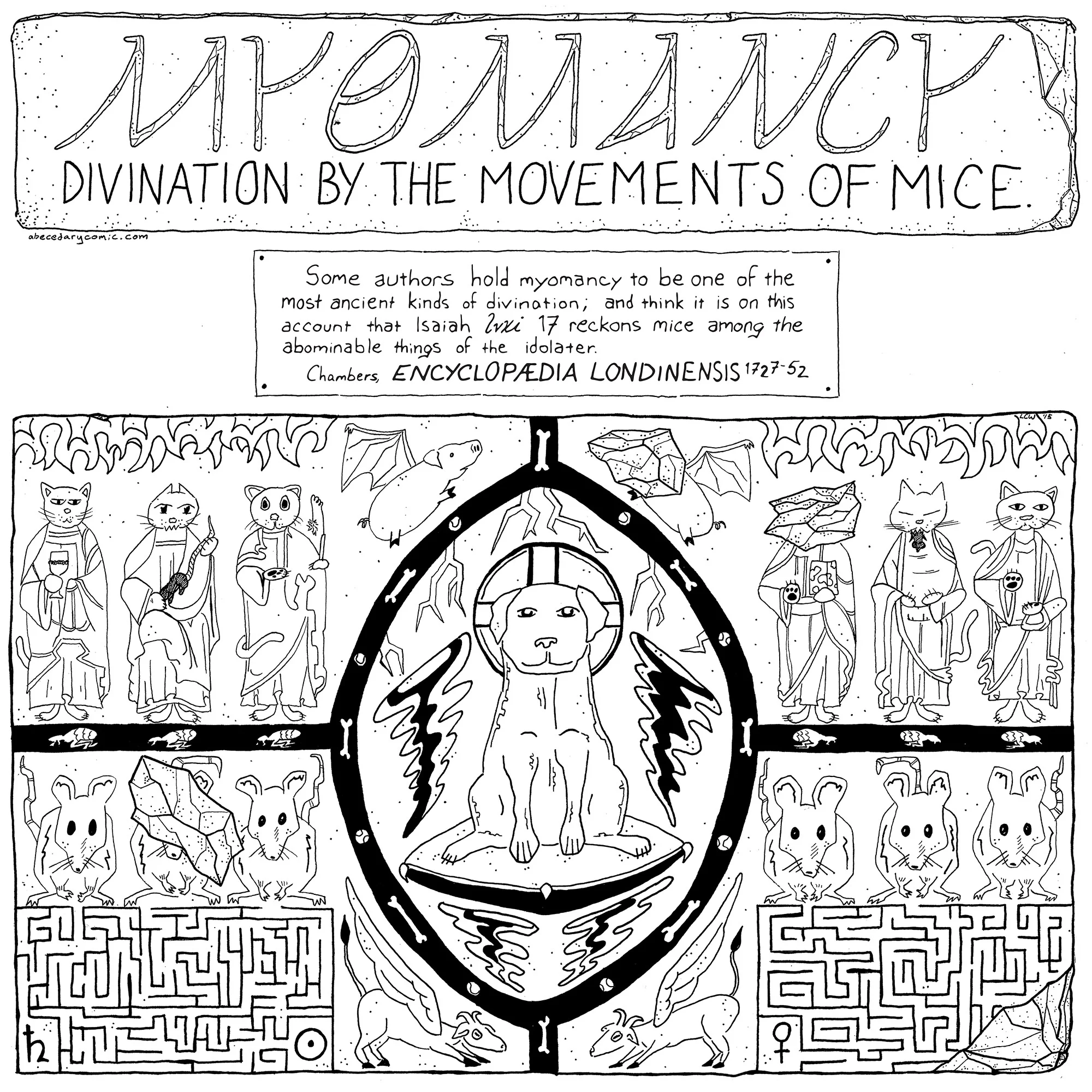myomancy
Etymological Colonialism
The idea behind this comic came from more than just the excerpt in the Oxford English Dictionary. The full Chambers quotation goes on to say about Isaiah 16:17, “that it is not certain that the Hebrew word used by the prophet signifies a mouse, it is evident that it is not the divination by that animal, be it what it will, that is spoken of, but the eating it.” Earlier, Isaiah 16:15 states God “will come with fire, and with his chariots like a whirlwind, to render his anger with fury, and his rebuke with flames of fire.” The idea of mice as a divination tool and a meal made me think of how cats will toy with their prey. Expanding the cast of animals led to the visual pun for the heavenly storm. The scene is depicted as a partially preserved fresco. Since the Abecedary is about unearthing forgotten words and carrying them off from their original contexts to re-purpose and put on display for my own ends, the ruin is displayed as if in a museum, with the encyclopedia quote serving as the informational plaque.
† myomancy, n. Obsolete. rare. Divination by interpreting the behavior of mice.
“Some authors hold Myomancy one of the most ancient kinds of divination; and think it is on this account that Isaiah, lxvi. 17. reckons Mice among the abominable things of the Idolaters.”

